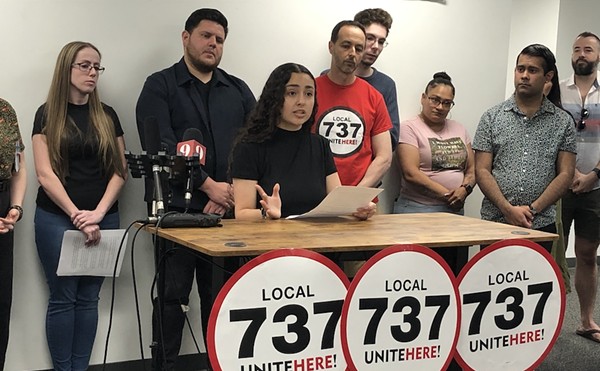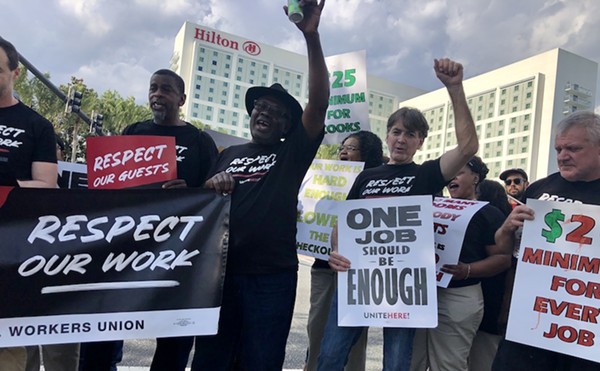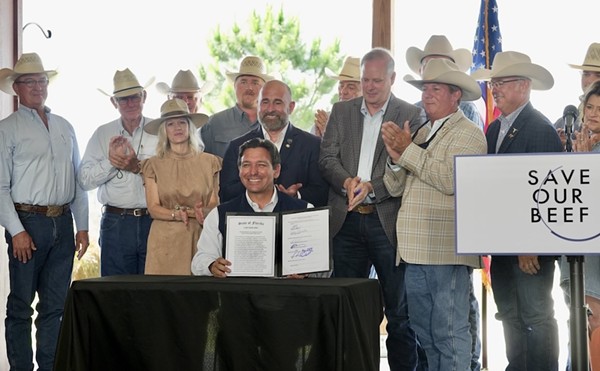He got off to a rocky start, beginning his first council meeting by saying, "Let's see. I'll call the meeting to order. That would be a good first order of business."
But Buddy Dyer quickly established himself as a congenial leader, one who includes and praises fellow commissioners, and one who demonstrates a firm grasp on how to run a public forum.
In short, he was nothing like his predecessor, Glenda Hood, whose defensiveness, self-aggrandizement and tenuous grasp of council etiquette often turned council meetings into a circus. Hood liked to remind everybody of her lofty position by sitting at council in a red leather chair; forgot which motion was being voted on; called on handlers to answer difficult questions; interrupted speakers she disagreed with; and deflected criticism and blame. Under her watch, order was so haphazard commissioners often talked over one another.
Orlando is now in the hands of Dyer, who spent 10 years in Florida's capital city as a state senator -- years in which he learned how to handle business and win over colleagues. On opening day at council, he called himself a rookie, apologized when he lost his place and said he would rely on commissioners' "experience and talent" to help him make decisions. He also sat in a brown leather chair. Hood's red chair was up for auction.
At the council's 10 a.m. workshop, Dyer displayed his diplomatic skills when he guaranteed council members would henceforth be part of the budget process, a process that led to a $23.6 million deficit. "We're going to budget differently than we have in the past," Dyer said.
He outlined how he would chop $16 million from the budget. (The council had already slashed $7.6 million before Hood left office last month.) The city would, delay $3.43 million in construction money to the Rosemont and College Park Community Centers, and drop its contribution to Lake Baldwin Park.
Those three projects happen to be in District 3, which angered its commissioner, Vicki Vargo. She wanted to know why Dyer hadn't cut $300,000 in lobbying contracts, or $310,000 Hood used to publish her vanity newsletter, The O-Town News.
Dyer diffused the tension by saying he lives in College Park and was sharing constituent backlash. As for the newsletter, it was already gone; the contracts would suffer a similar fate.
Dyer didn't interrupt when commissioner Phil Diamond grilled Orlando's chief financial officer, Mickey Miller, about the release of the fiscal 2002 city audit. Miller said the document will come out next week, a typical turnaround. Diamond wanted it done sooner.
Dyer also handled a political gadfly much more gently than Hood would have. Gabe Kaimowitz protested recent city annexations, as well as the classification of the Jack Kerouac House and William Monroe Wells House as landmarks.
District 6 Commissioner Ernest Page wanted to limit the number of times Kaimowitz was allowed to speak. Dyer said no. "You know what? I'm going to let him talk," the mayor said. It was the smartest way to handle Kaimowitz, which is why Hood never figured it out.


















